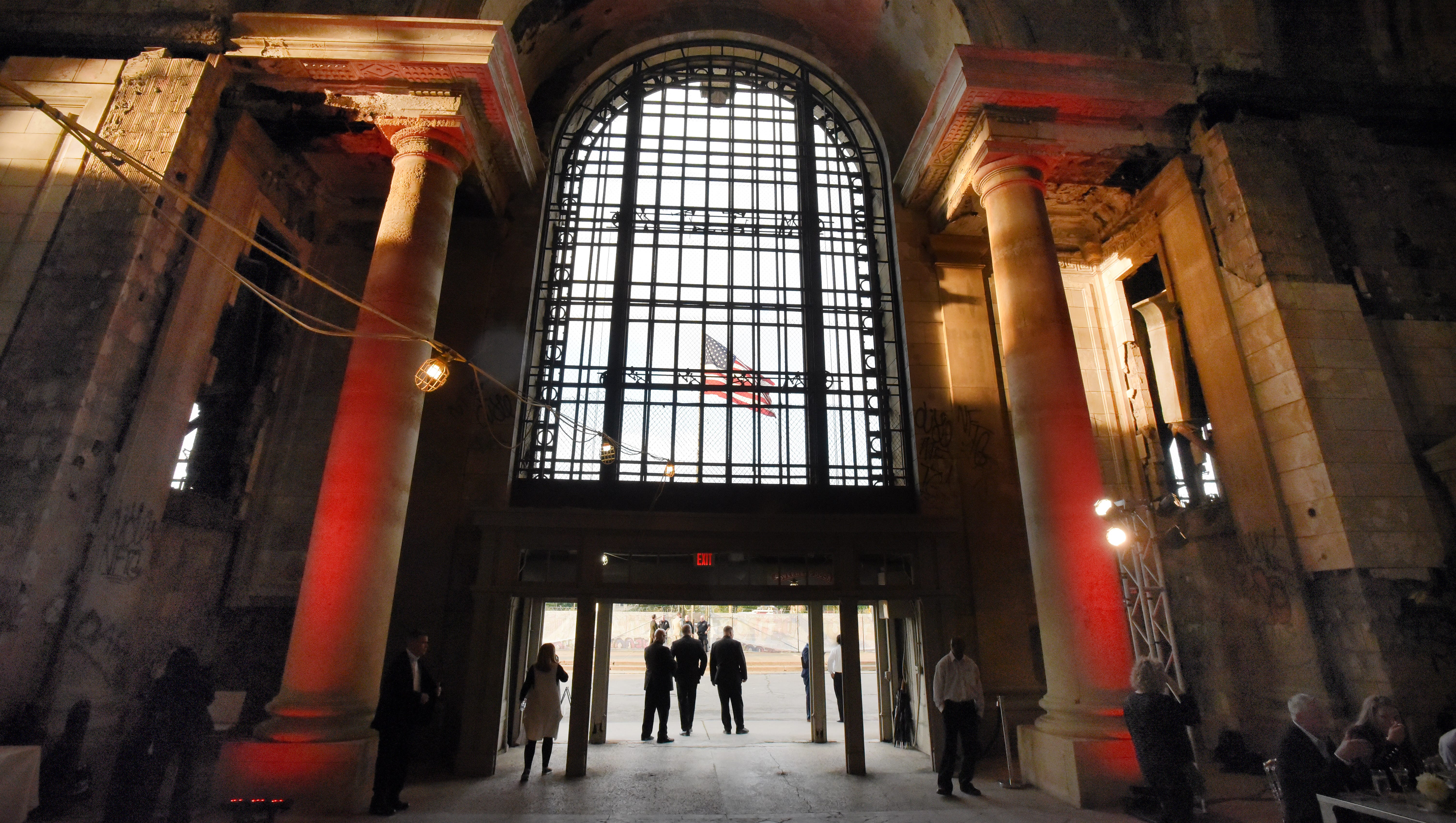Council paves way for tax breaks at Ford's Corktown campus
 Christine Ferretti
Christine Ferretti
Detroit — The City Council on Tuesday granted a series of approvals that will bring Ford Motor Co. closer to securing $103.5 million in tax breaks for its Corktown campus.
The council also signed off on Ford's plans to invest millions in affordable housing and workforce training, education and development as well as efforts to ensure nearby businesses are not displaced.
Members voted 8-0 on most of the proposals and community benefits. But President Pro Tem Mary Sheffield and Councilwoman Raquel Castaneda-Lopez voted no on the establishment of a Renaissance Zone in the Corktown neighborhood. Councilman Scott Benson was absent.
Sheffield said after the meeting that she has high hopes for the Ford project and believes it will bring in new residents and work opportunities.
"It's a catalyst project that will really create the entire landmark of the city of Detroit," she said. "People will move here. The mobility options that will be presented, the jobs that are going to be presented, I think it's a win for Detroit, no question about it."
The council on Tuesday established rehabilitation districts that will make Ford eligible for the future tax abatements.
Among them are an obsolete property rehabilitation exemption for the Michigan Central Station and Book Depository that would reduce the millage rate for 12 years and a commercial rehabilitation exemption for the brass factory and parking decks that reduces the millage rate for 10 years.
The panel also approved the renaissance zone, a 30-year abatement with a deferment by up to five years.
The zone will exempt real and personal property taxes except for debt mills, city corporate income tax and utility users tax. Personal city income tax revenue would be generated and collected from the project.
Sheffield said she voted against that component of the plans because it was "too excessive."
Separately, Ford has requested a neighborhood enterprise zone that would reduce the millage rate for a potential 40 condominium units in Michigan Central Station. That is slated to return to a council subcommittee next month due to a 60-day waiting period, officials have noted.
The automaker’s request is part of $239 million in tax breaks that it is seeking for its $740 million project, which will create a 1.2-million-square-foot campus in the southwest Detroit community.
"Today is an important step in Ford’s long-term commitment to Detroit and Corktown, and we are very happy that this project can continue moving ahead with the support of both Detroit City Council and the Corktown community," Ford said in a statement issued Tuesday after the vote.
"From the beginning, we have been working diligently to collaborate with everyone involved, developing a community benefits package that will bring millions of dollars of positive impact to the local area, including programs to support economic growth, housing affordability, workforce development, parks preservation, neighborhood safety and preserving Corktown’s culture.”
One of the most pressing issues for Ford is its desire for designation under Michigan's Obsolete Property Rehabilitation Act. The automaker has said it hopes to get approval by the Oct. 31 deadline so that it can begin winterization work on Michigan Central Station.
Prior to the votes, multiple residents and community groups voiced support and concern over the proposals.
Corktown resident Debra Walker said Ford told council members that the company has been a "great partner" so far in the impacted zone.
“I urge you to support abatements and the community benefits negotiated,” she said. “Also, we need to understand that what Ford is doing is monumental. They are not just developers coming in, developing and leaving, they are neighbors."
But others, such as Linda Campbell of the Equitable Detroit Coalition, said the benefits forged so far aren't enough.
Campbell on Tuesday called the project a “high-stakes investment” for the community and called on council to work out a better deal before the tax breaks are finalized. Many of the recommendations proposed by the community, she contends, "were disregarded."
Council President Brenda Jones noted the work that went into the community benefits plan and despite some criticism said she supports it.
“Overall, I am going to support it because there is money that the city will be receiving from this project that otherwise would have not been received because the building was just sitting over there vacant,” she said.
Under state law, work cannot begin on the Corktown project until the State Tax Commission grants a property designation for Ford under the rehabilitation act, according to the Detroit Economic Growth Corp.
Ford's benefits plan was unveiled last month and crafted in response to a "wish list" from residents.
Sheila Cockrel served as chair of the neighborhood advisory council that negotiated community benefits for the Ford development.
She said the proposal came together after numerous meetings and was “fully transparent.” Cockrel added she’s proud of the outcome, which equates to about $22.5 million worth of benefits from scholarships to workforce development and its other components.
“Community benefits are something that add to the quality of life of people in the impact zone and also the entire city,” she said at Tuesday's meeting.
Ford has proposed a $2.5 million investment for the city's Affordable Housing Leveraging Fund to preserve or create about 200 units in the project's footprint. Another $2.5 million would go toward the Strategic Neighborhood Core City Fund for park, streetscape and mobility upgrades and financial support for emergency home repair grants for seniors and
The company also wants to commit $5 million to workforce training and skilled trades jobs.
The company has said it plans to bring 2,500 workers from its autonomous technology and electrification departments to the new campus. Another 2,500 employees are expected to come from startups and other partner companies.
The city has said the train station currently earns Detroit about $200,000 in taxes.
After the project is completed, the city expects to receive $10 million in tax revenue each year, primarily in income tax revenues, officials have said.